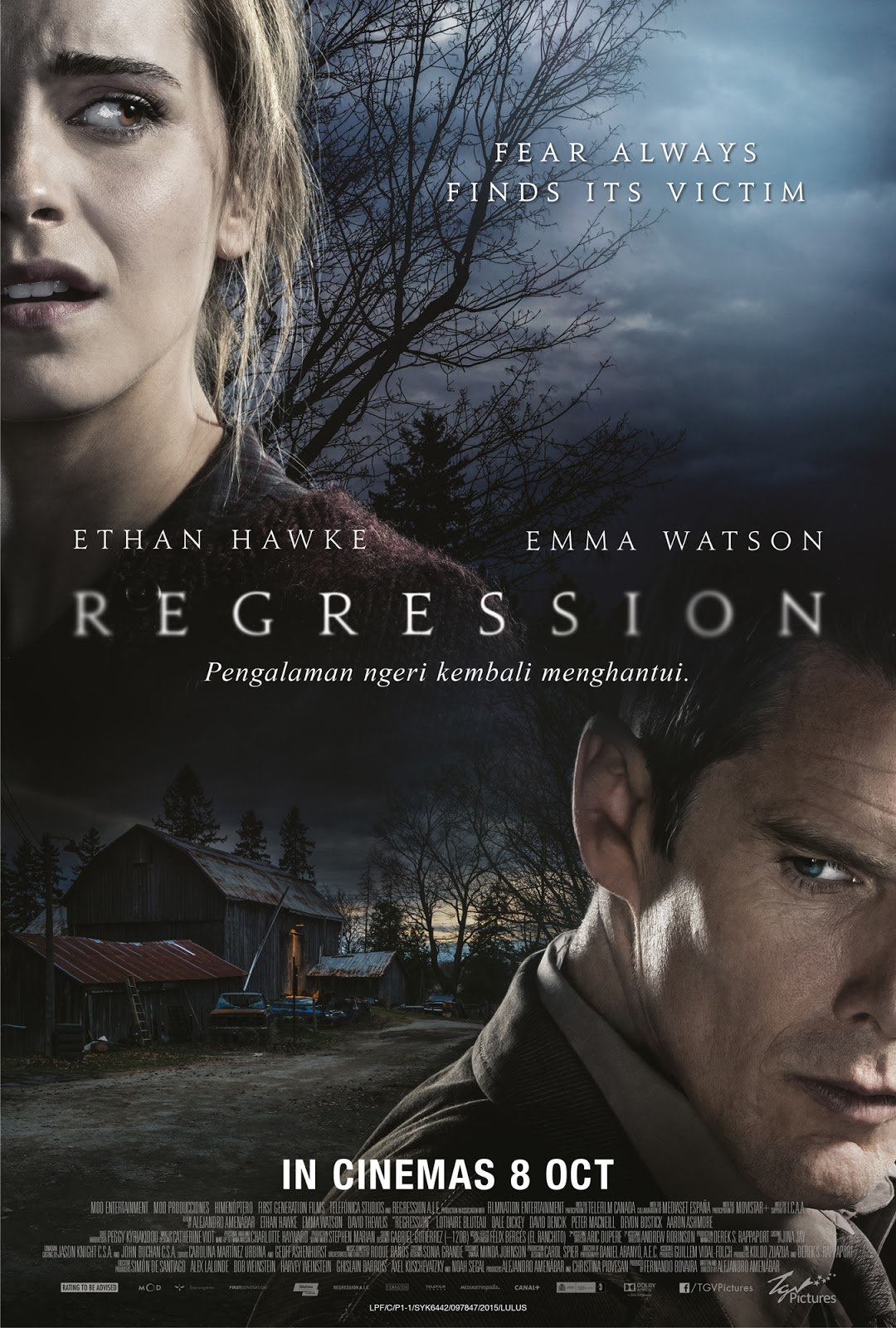The realm of cinema often delves into complex themes that challenge our perceptions of reality, morality, and the human psyche. One such film that has sparked discussions and debates is the Regression movie. This psychological thriller not only captivates audiences with its intriguing plot but also raises questions about faith, memory, and the nature of truth. Set against the backdrop of a small town plagued by a series of mysterious events, the Regression movie explores the dark corners of human consciousness, leaving viewers both entertained and contemplative.
As we embark on this exploration of the Regression movie, it is essential to understand the film's context and the motivations behind its creation. The director, known for his distinctive storytelling style, weaves a narrative that blurs the line between reality and illusion, challenging the audience to question what they believe. This film not only serves as a gripping thriller but also as a commentary on the psychological effects of trauma and the influence of belief systems on our actions and perceptions.
In this article, we will delve into various aspects of the Regression movie, from its plot and character development to the thematic elements that resonate with viewers. We will also explore the film's reception and its impact on audiences, providing a comprehensive understanding of why this movie has become a significant talking point in contemporary cinema.
What is the Plot of the Regression Movie?
The Regression movie unfolds in a small, seemingly peaceful town that is shaken by the traumatic events surrounding a series of allegations of abuse stemming from a local church. The central character, Angela Gray, portrayed by the talented Emma Watson, finds herself at the heart of a chilling investigation after she claims to have suppressed memories of a cult-like abuse she suffered in her childhood. As the story progresses, the audience is taken on a suspenseful journey filled with twists and turns, as Angela's memories are brought to light through a controversial method of regression therapy.
Who are the Key Characters in the Regression Movie?
The film features a compelling cast of characters that contribute to the haunting atmosphere and complex narrative. Here are some of the main characters:
- Angela Gray - Played by Emma Watson, she is the protagonist whose memories of childhood trauma are central to the story.
- Detective Kenneth Raines - Portrayed by Ethan Hawke, he is the investigator assigned to Angela's case, navigating the murky waters of truth and deception.
- Dr. Henry West - Played by David Thewlis, he is the psychologist who conducts the regression therapy sessions with Angela, raising ethical questions about his methods.
- Father Moore - A pivotal character who represents the church's influence in the town, played by Michael Nyqvist.
What Themes are Explored in the Regression Movie?
The Regression movie is rich in thematic content, addressing several critical issues that resonate with audiences. Here are some of the prominent themes:
- Memory and Trauma: The film highlights how trauma can impact memory and the psyche, questioning the reliability of our recollections.
- Faith and Manipulation: The narrative examines how faith can be exploited, delving into the intersection of religion and personal belief.
- Truth and Perception: The film challenges viewers to consider what is true versus what is perceived, blurring the lines between reality and illusion.
- Ethics in Therapy: The use of regression therapy raises ethical questions about the responsibilities of mental health professionals.
How Was the Regression Movie Received by Audiences?
Upon its release, the Regression movie garnered mixed reviews from critics and audiences alike. While some praised its thought-provoking narrative and strong performances, others criticized it for its pacing and convoluted plot. Despite the mixed reception, the film sparked conversations about its themes and the ethical implications of regression therapy.
What Impact Did the Regression Movie Have on Contemporary Cinema?
The Regression movie has made a significant impact on contemporary cinema, particularly in the psychological thriller genre. Its exploration of memory, trauma, and the complexities of belief has influenced other filmmakers to tackle similar themes. The film's unique approach to storytelling and character development has opened the door for more nuanced narratives that challenge conventional storytelling methods.
What Can We Learn from the Regression Movie?
Ultimately, the Regression movie serves as a reminder of the complexities of the human experience. It encourages viewers to reflect on their own beliefs, perceptions, and the nature of truth. As we navigate through life, it is essential to question the narratives we hold, recognizing that our understanding of reality may be shaped by our experiences and the influence of those around us.
Conclusion: Why Should You Watch the Regression Movie?
In a world where truths are often obscured by personal biases and societal influences, the Regression movie stands out as a compelling exploration of the human psyche. With its engaging plot, complex characters, and thought-provoking themes, this film is a must-watch for anyone interested in the psychological thriller genre. It challenges us to confront our fears, question our beliefs, and ultimately seek the truth hidden within the shadows of our memories.
Whether you are a fan of psychological thrillers or simply looking for a film that will ignite deep conversations, the Regression movie promises an unforgettable cinematic experience. So, grab your popcorn, dim the lights, and prepare to embark on a journey through the intricate layers of human emotion and memory.
You Might Also Like
Exploring The Meaning Behind Friendship Heart ColorsKeanu Reeves: The Unstoppable Force Of John Wick
Candace Flynn: The Age Of Phineas And Ferb's Ever-Energetic Sister
Unveiling The Age Of Max Scorpio: How Old Is He Really?
Nicollette Sheridan: A Journey Through Her Relationships
Article Recommendations
- Natasha Nice Weight Loss
- Trumps Incontinence
- Catherine Bell Partner
- Snapgod Lizzy
- Alexis Stewart Net Worth
- Jenny Likens
- Nayib Bukele Religion
- Is Barron Trump Gay
- Jordin Sparks
- P Diddy Kim Kardashian Video


